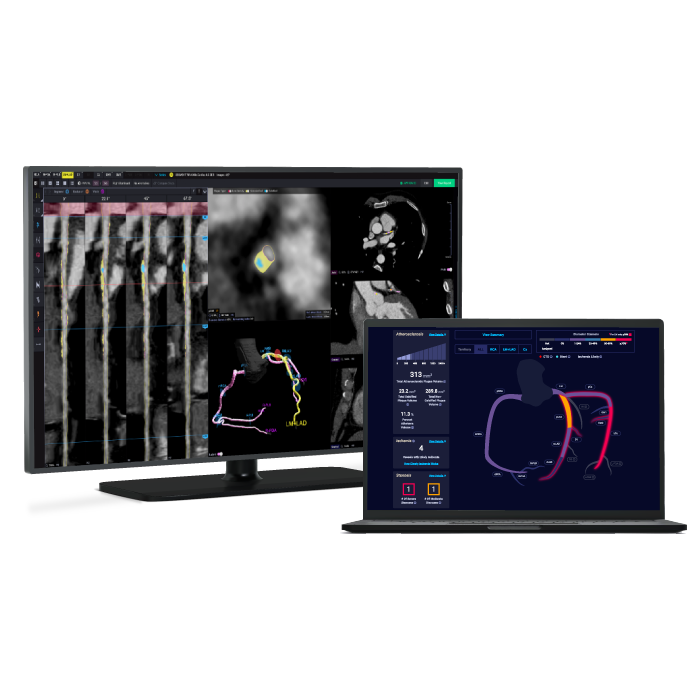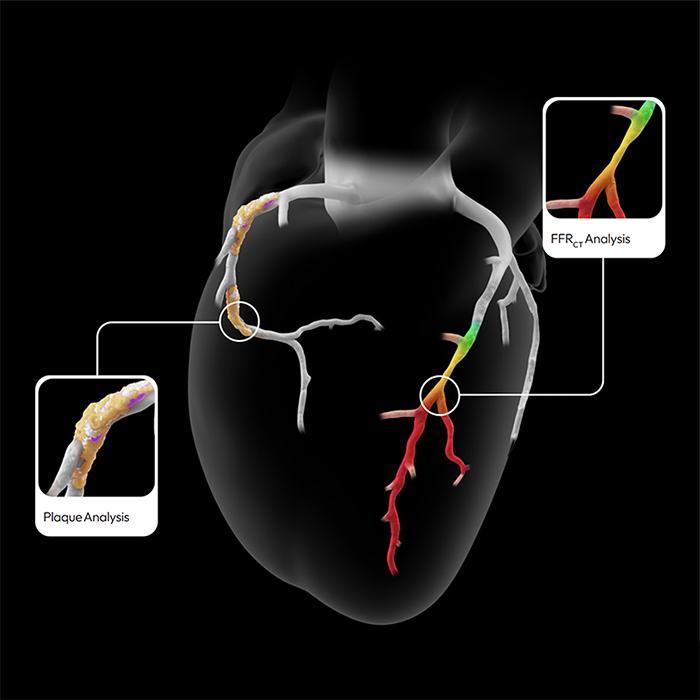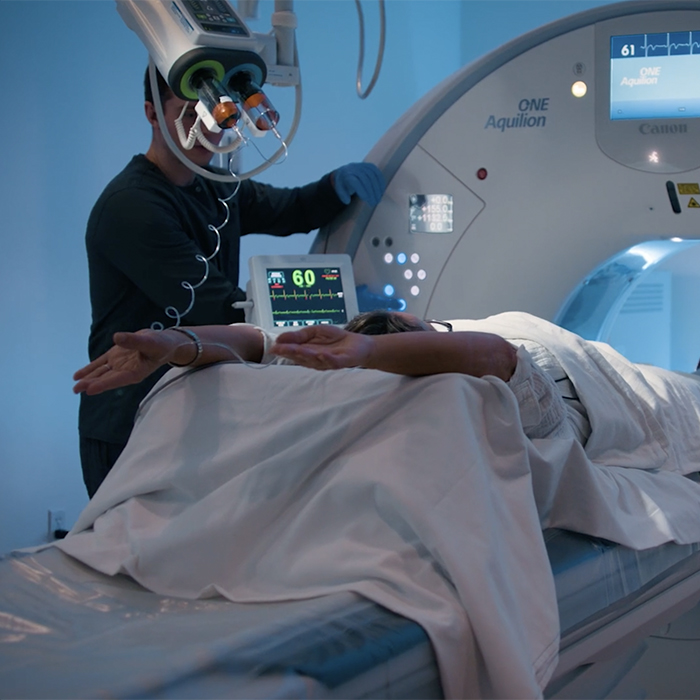Coronary CT Angiogram (CCTA)
A safe, non-invasive way to see your heart's arteries.
This advanced heart scan shows whether your arteries have plaque buildup or blockages and whether blood flow to your heart is reduced — all without needing a catheter procedure.

Why It Matters
Heart disease can develop silently for years. A CCTA with plaque analysis and FFR-CT helps:
- Detect early signs of coronary artery disease (CAD)
- Measure how much plaque is present and what kind it is
- Estimate if narrowings reduce blood flow
- Guide your doctor in choosing the best care plan — lifestyle changes, medications, or further testing
What is a Coronary CT Angiogram (CCTA)?
A CCTA uses a fast CT scanner and a small amount of contrast dye to take detailed pictures of your heart’s arteries.
It shows:
- Where plaque is located
- How much narrowing (stenosis) is present
- What type of plaque there is — hard (calcified) or soft (non-calcified)
Soft plaque is often the most dangerous type because it can rupture and cause heart attacks. Finding it early allows for effective treatment before symptoms worsen.

What is Plaque Analysis?
Plaque analysis is an advanced part of your CCTA report that goes beyond simply looking for blockages.
It measures the amount, type, and characteristics of plaque inside your arteries to understand your heart-disease risk more precisely.
What It Shows
- Total plaque volume: how much plaque has built up in your arteries
- Plaque composition:
- Calcified plaque — hardened and stable
- Non-calcified (soft) plaque — newer, more likely to cause problems
- High-risk features: signs that plaque may be unstable (e.g., low-density areas or vessel wall changes)
Why It's Important
Even if arteries are not severely narrowed, plaque buildup itself signals coronary artery disease.
Plaque analysis helps:
- Identify early heart disease before symptoms occur
- Track changes over time (plaque regression or progression)
- Personalize treatment — such as cholesterol-lowering or anti-inflammatory therapy
In short, plaque analysis turns a picture of your arteries into a detailed “map” of your heart health.

What is FFR-CT?

Who Should Consider This Test
You may benefit from a CCTA with plaque analysis and FFR-CT if you:
- Have chest pain, shortness of breath, or possible heart symptoms
- Had a stress test with unclear or conflicting results
- Have family history of heart disease or high cholesterol
- Already know you have some plaque and want to monitor it over time

How To Prepare
- Do not eat for 2–4 hours before your scan. Water is fine.
- Avoid caffeine for 12–24 hours before your appointment.
- Bring a medication list. You may receive medicine to slow your heart rate or relax your arteries.
- Let us know if you have allergies, kidney issues, or might be pregnant.

What Happens During the Test
- You’ll check in and have an IV placed for contrast dye.
- Small ECG stickers are attached to track your heartbeat.
- You may receive medication to slow your heart rate and widen your arteries.
- The scan itself takes just a few seconds while you hold your breath.
- You can usually return to normal activities right after.
Is It Safe?

After the Test
Your cardiologist reviews:
- The CT images of your heart
- The plaque analysis report showing how much and what type of plaque is present
- The FFR-CT results showing how well blood flows through each artery
You and your doctor will then discuss what the findings mean and next steps, such as:
- Adjusting medications
- Making lifestyle changes
- Considering further testing if needed
Common Questions
Insurance and Cost
CCTA is often covered by insurance when medically necessary.
Coverage for plaque analysis and FFR-CT may vary, and our staff can help check benefits and review self-pay options.

Schedule Your Scan
If you have symptoms, risk factors, or just want to know more about your heart health, we’re here to help.
Call: (425) 458-0707
Email: info@cardionow.org
Visit: See our location and hours on our Contact Us page

